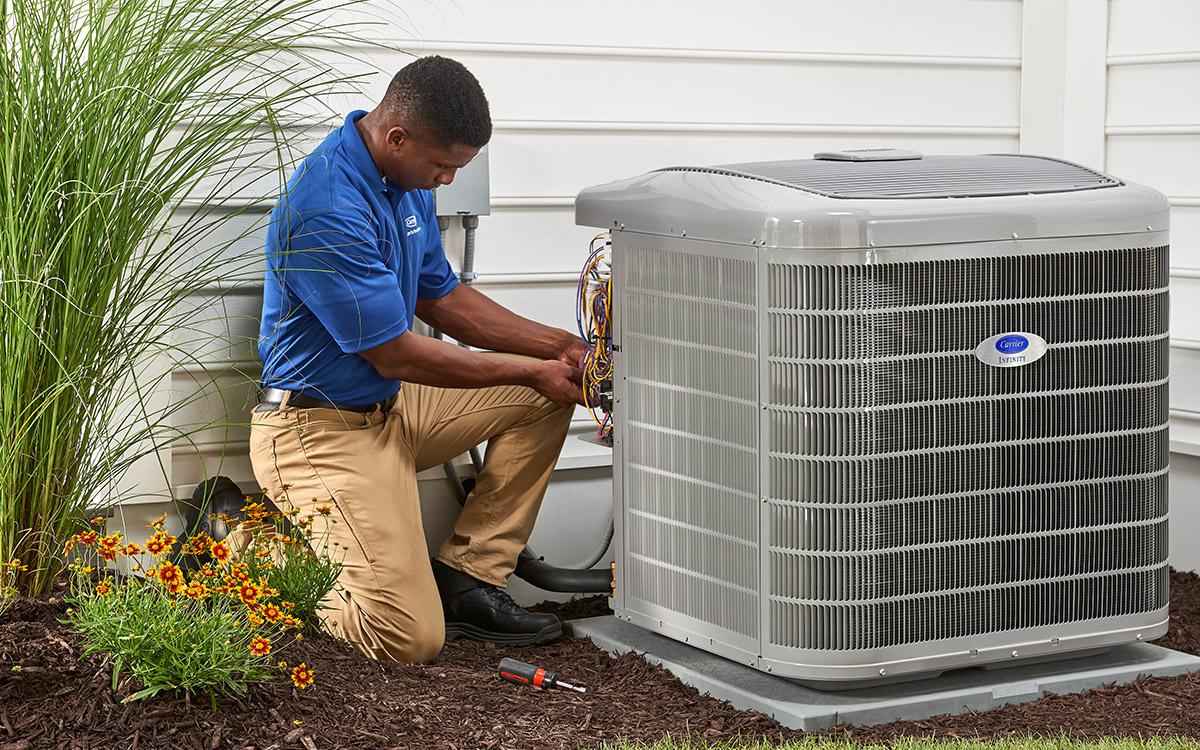
Whether you operate a retail store, office, restaurant, or any other commercial space, the temperature and air quality inside your business play a crucial role in overall productivity and customer satisfaction.
A properly installed air conditioning system is not just about cooling a space—it impacts energy efficiency, workplace comfort, compliance with regulations, and long-term cost savings.
Many businesses overlook the importance of professional air conditioner installation, only to face issues such as uneven cooling, high energy bills, and system breakdowns. Investing in expert installation ensures optimal performance, reduces maintenance costs, and enhances the overall business environment.
In this blog post, we’ll explore why air conditioner installation is vital for any business and how it can contribute to long-term success.
1. Enhancing Employee Comfort
Creating a comfortable working environment is essential for any business. Employees who work in excessively hot or cold conditions are more likely to experience discomfort, which can negatively impact their focus and productivity. A professionally installed air conditioning system helps regulate indoor temperatures, ensuring a stable and comfortable workspace.
Beyond comfort, proper temperature control also has significant health benefits. Extreme heat can lead to dehydration, heat exhaustion, and fatigue, while excessive cold can cause stiffness and reduced dexterity. With a well-installed air conditioning system, businesses can prevent these issues, keeping their workforce healthy and engaged.
Another crucial aspect of air conditioning installation is its impact on indoor air quality. A properly installed system helps filter out dust, allergens, and pollutants, creating a cleaner and healthier environment. Poor air quality can lead to respiratory issues, allergies, and increased sick days among employees, which can affect overall business operations. Investing in a high-quality air conditioning system ensures employees remain comfortable, healthy, and productive throughout the year.
2. Improving Customer Experience
The customer experience is a key factor in business success. Whether running a retail store, a restaurant, or a corporate office, providing a comfortable atmosphere can significantly influence customer satisfaction. A well-regulated temperature makes customers more likely to stay longer, explore offerings, and return for repeat business.
In retail, for example, excessive heat or cold can make shopping uncomfortable, leading to customers leaving before making a purchase. Similarly, in restaurants, a stuffy or overly cold dining area can ruin the dining experience. Proper air conditioning installation ensures an optimal temperature, enhancing customer enjoyment and increasing the likelihood of positive reviews and repeat visits.
On the one hand, temperature plays a psychological role in how customers perceive a business. A cool and comfortable environment fosters relaxation and encourages customers to take their time, increasing engagement with products or services. On the other hand, an uncomfortable climate may lead to negative impressions, reducing customer retention. With a professionally installed air conditioning system, businesses can maintain an ideal indoor climate, enhancing their brand image and boosting overall revenue.
3. Energy Efficiency and Cost Savings
Energy efficiency is a top concern for business owners, especially given the rising costs of electricity. A poorly installed air conditioning system can lead to inefficiencies such as overworking the unit, uneven cooling, or air leaks, all of which contribute to higher energy bills. By investing in professional air conditioner installation, businesses can ensure their system operates at peak efficiency, reducing unnecessary energy consumption.
An efficiently running air conditioning system not only lowers energy costs but also reduces the business’s carbon footprint. With growing awareness around sustainability, many businesses are looking for ways to implement energy-efficient practices. A professionally installed AC system optimizes energy use, making it an eco-friendly choice that aligns with modern sustainability goals.
In the long term, cost savings extend beyond energy bills. Proper installation minimizes the risk of system malfunctions and excessive wear and tear, reducing maintenance costs. By ensuring the system is installed correctly from the beginning, businesses can avoid expensive repairs and premature replacements, making air conditioning installation a smart financial decision.
4. Meeting Legal and Safety Standards
Businesses must comply with various regulations concerning workplace safety, and temperature control is a key component. Occupational health and safety guidelines often specify recommended indoor temperature ranges to ensure a safe working environment. Failure to maintain appropriate temperatures can lead to legal issues, fines, and even employee complaints.
Professional air conditioner installation helps businesses meet these requirements by ensuring that systems are set up correctly and efficiently. Proper installation also plays a role in fire safety, electrical compliance, and ventilation regulations, all of which are critical to maintaining a safe workplace.
Also, businesses that fail to comply with temperature and air quality regulations risk damaging their reputation. Employee dissatisfaction, customer complaints, or health concerns could lead to negative publicity or even legal action. By investing in professional air conditioner installation, businesses can protect themselves from these risks while creating a safe and compliant workspace.
5. Long-Term Maintenance and Reliability
An air conditioning system is a significant investment, and ensuring its longevity starts with proper installation. A well-installed unit is less likely to develop faults, ensuring smooth operation over the years. When businesses cut corners on installation, they may experience frequent breakdowns, inefficiencies, or premature system failures.
Routine maintenance is equally important in keeping the system running efficiently. Professional technicians can identify and fix minor issues before they escalate into costly repairs. Scheduled servicing helps maintain cooling efficiency, prevent component wear, and extend the lifespan of the unit.
Another benefit of professional air conditioner installation is the reduced likelihood of sudden malfunctions. Unexpected breakdowns can disrupt business operations, causing inconvenience for employees and customers. By installing the system correctly and committing to regular maintenance, businesses can enjoy reliable cooling without unexpected disruptions.
Frequently Asked Questions
Below are some commonly asked questions to consider:
1. How often should a business air conditioning system be serviced?
Most commercial air conditioning systems should be serviced at least twice a year. However, businesses with heavy usage, such as restaurants or retail stores, may require quarterly maintenance to ensure optimal performance.
2. Can an air conditioning system help reduce workplace noise?
Yes, modern air conditioning systems are designed to operate quietly, improving workplace conditions. Additionally, they can help reduce external noise by keeping windows and doors closed, creating a quieter indoor environment.
3. What are the signs that an air conditioning system needs to be replaced?
Signs include frequent breakdowns, rising energy bills, uneven cooling, and strange noises or smells. If a system is more than 10–15 years old and experiencing these issues, it may be time for a replacement.
Air Conditioner Installation is Vital for Businesses
Air conditioner installation is more than just a convenience—it’s a necessity for businesses looking to create a comfortable, energy-efficient, and legally compliant environment. A professionally installed system enhances employee well-being, improves customer experience, reduces energy costs, and ensures long-term reliability. By investing in high-quality installation services, businesses can enjoy significant benefits, from improved productivity to increased customer retention.

